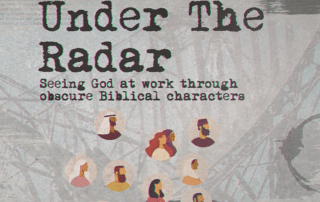PASSOVER: SANCTUARY & INTIMACY | Luke 22:7-13
Then the day for the feast of Unleavened Bread came, on which the Passover lamb had to be sacrificed. Jesus sent Peter and John, saying, “Go and prepare the Passover for us to eat.” They said to him, “Where do you want us to prepare it?” He said to them, “Listen, when you have entered the city, a man carrying a jar of water will meet you. Follow him into the house that he enters, and tell the owner of the house, ‘The Teacher says to you, “Where is the guest room where I may eat the Passover with my disciples?”’ Then he will show you a large furnished room upstairs. Make preparations there.” So they went and found things just as he had told them, and they prepared the Passover. Luke 22:7-13
For over 3,000 years the Jewish people have celebrated the Passover meal in remembrance of God’s miraculous deliverance liberating them from slavery in Egypt. God’s original command was to hold this meal in individual homes with extended family. The Passover celebration did not require a house of worship since the blood of the lamb sacrificed for each household marked that home as a sanctuary of protection against the angel of death.
Luke 22:7-13 depicts Jesus directing his disciples to prepare the Passover family meal for his intimate group of faithful followers. The narrative in and around this meal shows Jesus was fully aware of imminent forces of danger and darkness. Several details imply the location of the room for their celebration was a secret, unknown to those who were plotting Jesus’ death (Luke 22:1-6).
As the Passover meal commenced, Jesus’ tone became intensely emotional: Then He said to them, “With fervent desire I have desired to eat this Passover with you before I suffer” (Luke 22:15). Jesus’ passion revealed the significance of his choosing this intimate venue and its sacred celebration to convey the profound details of his sacrifice and better covenant: “This cup that is poured out for you is the new covenant in my blood.” (Luke 22:20).
Occasionally, an invitation to your table requires exclusion rather than open welcome. Many times a joyous, inclusive gathering is best. Other situations involve limiting your guest list to Jesus’ faithful followers so all can more fully partake in the complex riches of God’s kingdom.
Are there followers of Jesus who are precious to you? Do you desire to share a deeper understanding of who Jesus is and what he envisions? Plan to encourage those few by preparing a special, intimate gathering. Bonus idea: Include a seat for Jesus at the meal!
By Kathleen Petersen




